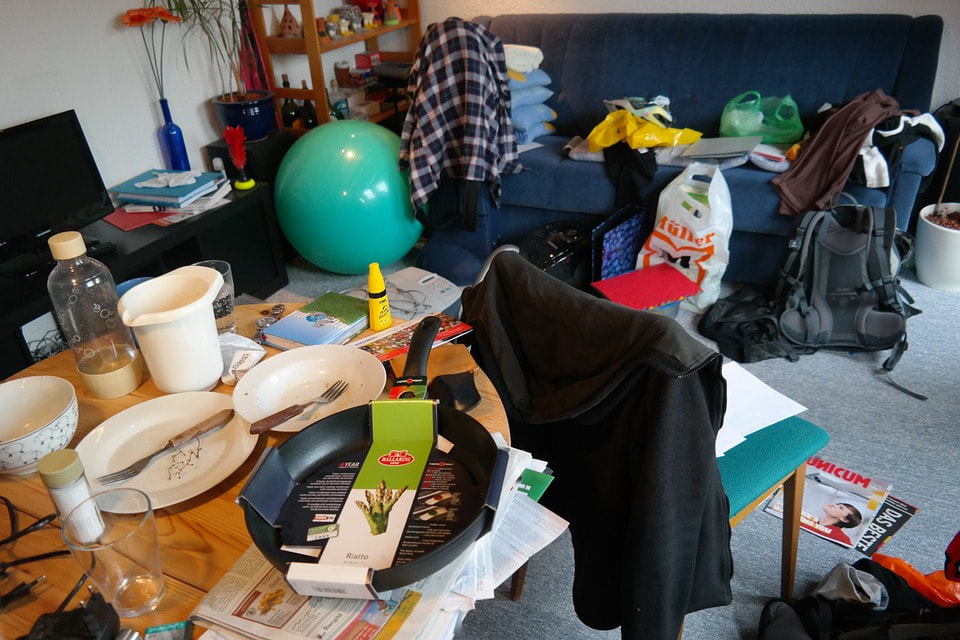Return to Education Newsletter main page! |
Making Your Space Work for YouBy ISJL Education Fellow Harrison Bleiberg
Your alarm starts blaring at 7:00 am. After hitting snooze at least twice, you wake up and hop in the shower, grabbing a full bottle of shampoo off the shelf, knocking over several empty bottles in the process. After drying off, you walk over to a pile of clothes on a chair and get dressed, digging through the pile to find a matching pair of socks. After pulling on your shoes, you walk over to your kitchen, gulp down a cup of coffee, and leave the cup in your sink. Your drive to work is uneventful, but every time you go over a bump, you hear items rolling around in your trunk and you feel water bottles shifting around in your back seat. You arrive at work and sit down at your desk. Your boss asks you for a document you have, but you have to dig through a pile of sheets on your desk to find it. You type up a report, but you do not finish in time, so you save it to your desktop, where it becomes one of over thirty icons that greets you every time you log in. You come home, throw your keys on the couch, watch some TV, and walk past your sink full of dirty dishes to your bedroom where you throw your dirty clothes down next to your bed and pull your unmade bedsheets over you. -- With very few exceptions, no one would likely describe this person as successful or happy by reading this description of their day. But, what is it about this description that leads us to make such quick judgments? More often than not, our physical spaces are reflections of our mental state. Many unhappy people do not spend time setting themselves up for success or putting effort into keeping things organized. After a while, our environment can become one of the many stressors that keep us stagnant and complacent. The good news, however, is that the connection between our mental state and our environment is a two-way street; our mental state may contribute to unorganized, messy surroundings. However, by changing our environment, we may take the first step towards a better outlook and comfort with the spaces we occupy. If you find yourself overwhelmed by your surroundings, or if the description above sounds a bit like you, use these five tips to create an environment that will work for you, not against you.
|
- Home
- WHO WE ARE
-
WHAT WE DO
- PODCAST
- Conference >
- Education >
-
CULTURE
>
- Culture Overview
- Cultural Programming >
-
History
>
-
Encyclopedia of Southern Jewish Communities
>
- Alabama Encyclopedia
- Arkansas Encyclopedia
- Georgia Encyclopedia
- Florida Encyclopedia
- Kentucky Encyclopedia
- Louisiana Encyclopedia
- Mississippi Encyclopedia
- North Carolina Encyclopedia
- Oklahoma Encyclopedia
- South Carolina Encyclopedia
- Tennessee Encyclopedia
- Texas Encyclopedia
- Virginia Encyclopedia
- Encyclopedia Credits
- Oral History
-
Encyclopedia of Southern Jewish Communities
>
- SPIRITUALITY >
- DONATE
- Shalom Y'all
- Strategic Plan
- Southern & Jewish Blog
- Calendar
- Virtual Press Kit
|
©2024 Goldring/Woldenberg Institute of Southern Jewish Life
|

